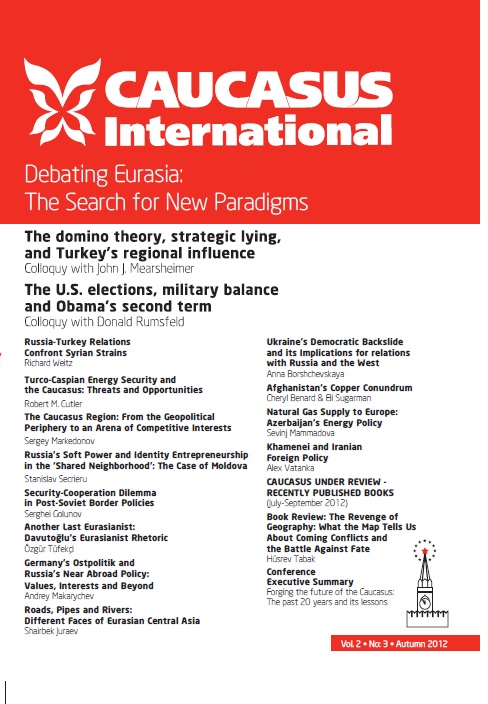Turco-Caspian Energy Security and the Caucasus: Threats and Opportunities
The evolution of the situation in Azerbaijan, Georgia, and Turkey reveals that the decisions made in the early 1990s by former Soviet republics in the Caspian Sea littoral to develop their energy assets and to monetize them for export to Western markets were correct. They reached out to one another and beyond for economic and political cooperation. The first and perhaps most spectacular realization of such cooperation on the ground was the Baku-Tbilisi-Ceyhan oil export pipeline. This project has created the backbone for South Caucasus regional integration in the former Soviet area, also involving the participation of Turkey. However, threats against energy security in the region have evolved since then. Conflict situations involving occupation by foreign forces both in Georgia and in Azerbaijan have embedded themselves in the region. The eventual dangers here are arguably worse than they were eight years ago. At issue are not only the contested territories of Abkhazia, South Ossetia and Nagorno-Karabakh. Also, as documented in the article, Iran has increased and intensified its provocations against Azerbaijan. This is ominous since the last eight years mark Azerbaijan’s emergence as a key actor in Turco-Caspian regional security, in both economic and political terms. When Iran promotes regional conflict in the Caucasus by threatening the territorial integrity, legitimacy and stability of the existing government, it threatens the energy security of the broader region, with the participation of Turkey. The strategy and practice of Turkey’s foreign political and economic policy should recognize this fact and take it into account.
Latest news
- 03/17/2020 Call for Submission: “Non-Alignment Movement and Its Perspective in International Affairs”. Deadline: 1 July 2020 2626 views
Popular articles
- 02/24/2020 The Role of Irredentism in Russia’s Foreign Policy 2536 views
- 02/24/2020 Construction of sub-national identity vis-à-vis parent state: Gagauz case in Moldova 2218 views
- 02/24/2020 The Conflict in Ukraine - The Geopolitics of Separatism and Divergent Identities (Commentary) 2072 views
- 02/24/2020 The Role of the Soviet Past in Contemporary Georgia 2044 views





